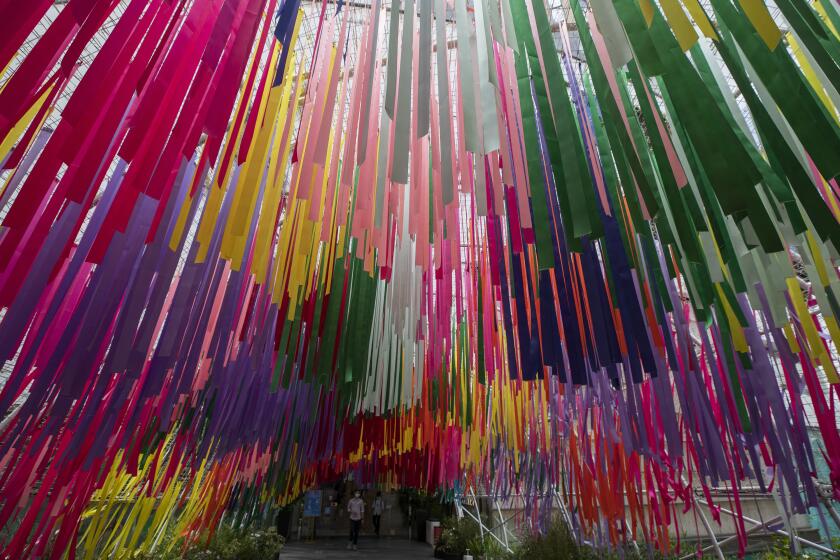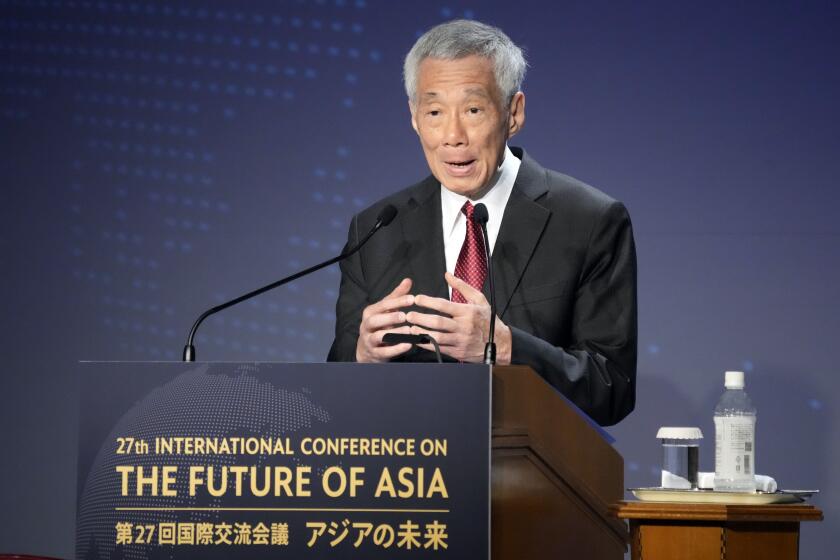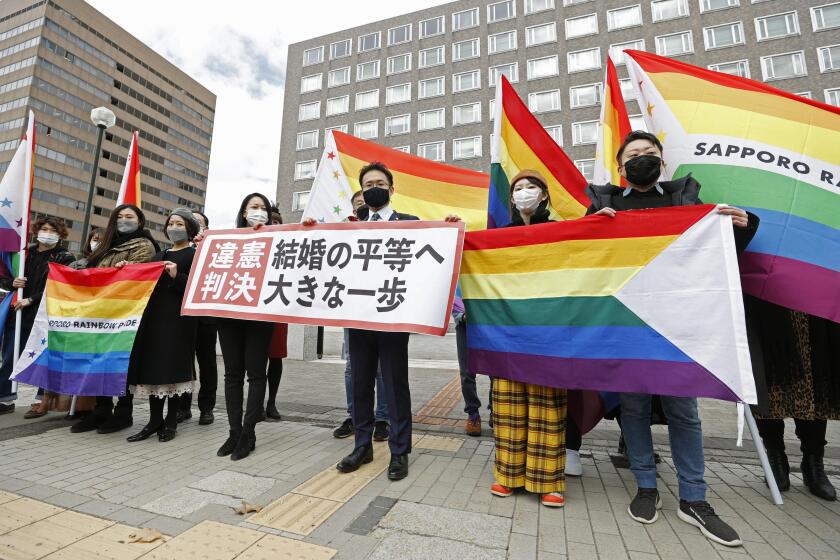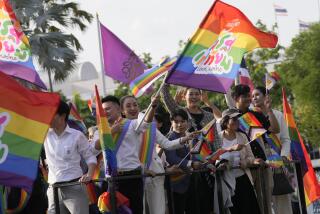Up in a tiny Himalayan kingdom, an LGBTQ revolution is on the climb
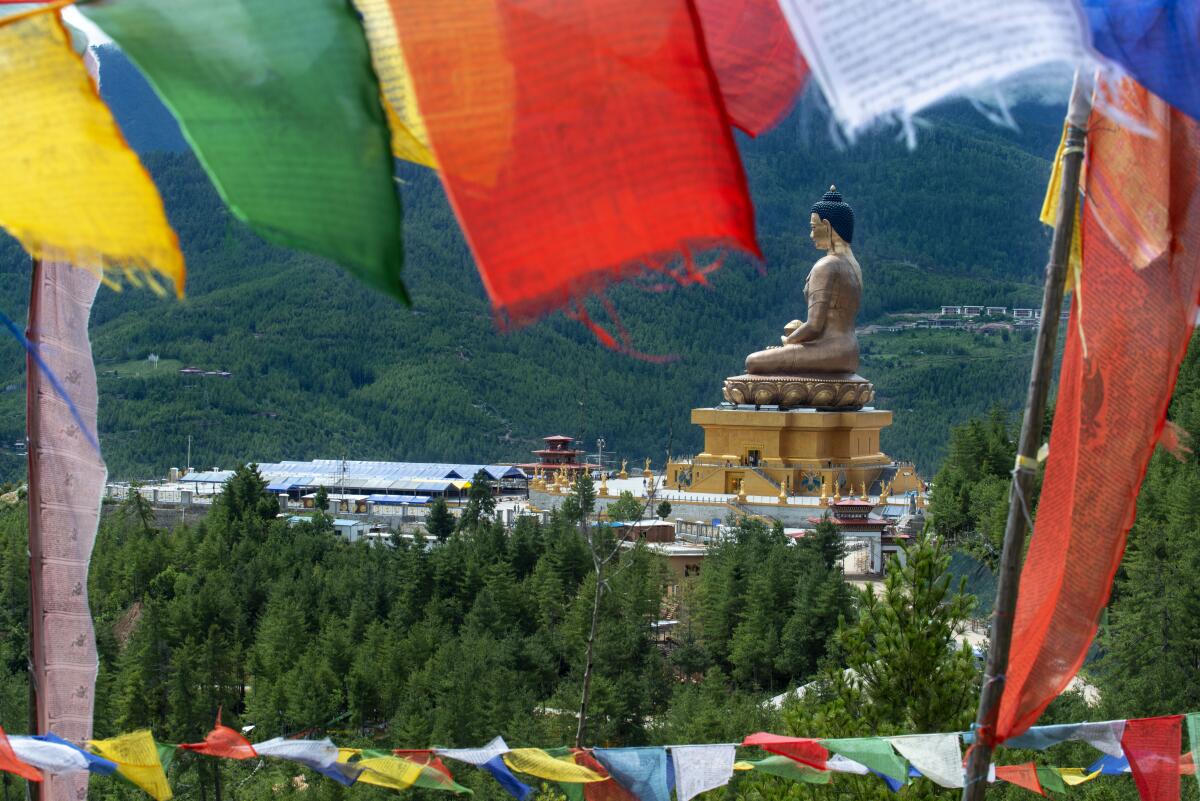
THIMPHU, Bhutan — Pema Dorji was waiting by the four-faced clocktower in downtown Thimphu, one of the highest capital cities in the world, perched at more than 7,500 feet above sea level. There was no one else nearby, so he was easy to spot, ambling at the edge of the square.
Although he seemed impervious to the altitude as he walked to a nearby cafe and restaurant, it was hard to miss his wringing hands — his overt fidgeting. “Sorry if I seem nervous,” he said. “I’ve been like this since I was a child, since I was bullied, since I was called degrading names.”
Dorji, 30, is co-founder of Queer Voices of Bhutan, and he and fellow activists were still celebrating a vote by lawmakers in December 2020 to repeal a section of the country’s penal code that had criminalized “sodomy or any other sexual conduct that is against the order of nature.”
“It was a crucial step for us,” he said.
Thailand’s Cabinet has approved two draft bills that would give same-sex unions legal status similar to that of heterosexual marriages.
The change is particularly notable given Bhutan’s reputation as an inaccessible Himalayan kingdom, little influenced by the outside world. The landlocked country with a population of only 750,000 measures progress and growth with a “gross national happiness” metric, rather than gross domestic product, and it has resisted modern technology for decades.
While other countries scramble to attract tourist dollars, the government recently tripled its daily visitors tax to $200 to limit foreign influence and protect the environment.
But growing cellphone coverage and access to social media have allowed LGBTQ activists to mobilize, strengthen their platform and give a face to the community. That, combined with a Buddhist culture that respects diversity, has helped to fuel a quiet revolution in this quiet little kingdom.
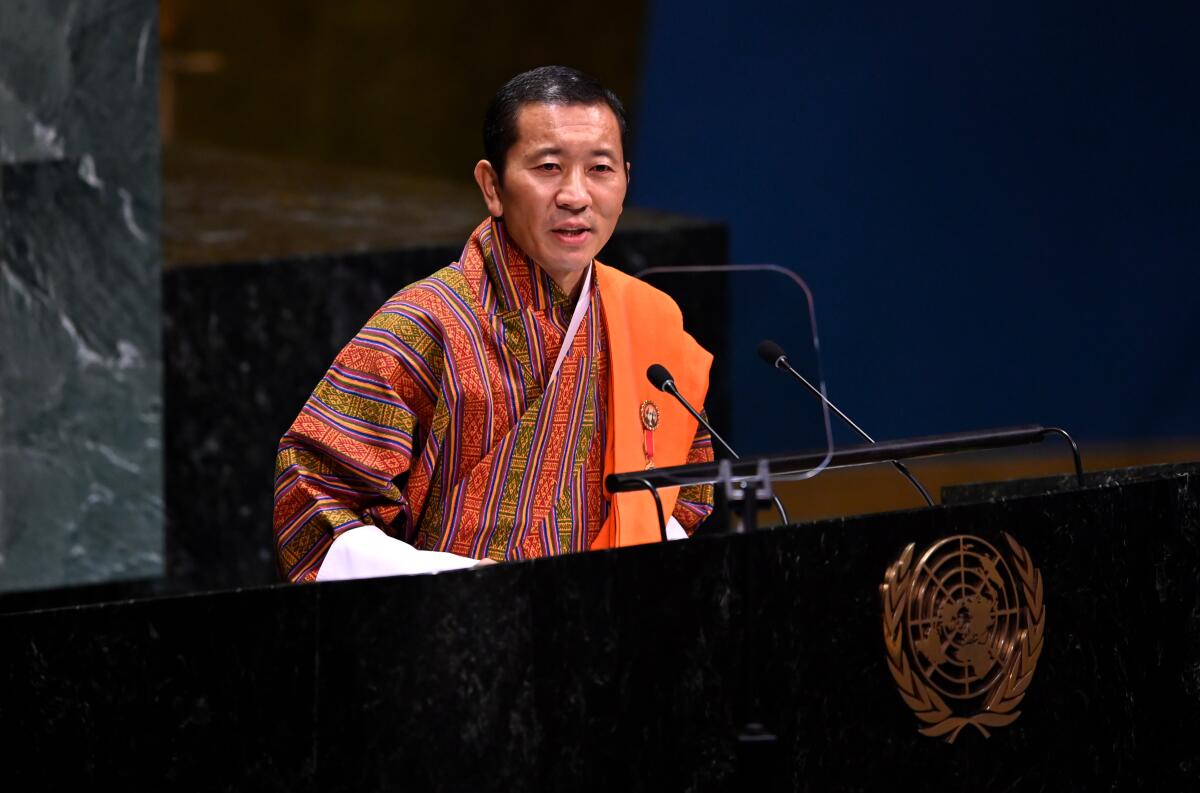
“Repealing these two articles is the biggest step we could have taken now,” Prime Minister Lotay Tshering said in September. “But it’s only the first step, obviously. Now, everything will be easier.”
“Same-sex marriage too?” a reporter asked.
“Everything,” he replied.
::
This change in Bhutanese law is part of a pattern in the region, which is seeing restrictions ease for same-sex relationships. In neighboring India, the Supreme Court struck down one of the world’s oldest bans on gay sex in 2018. A year later Taiwan voted to legalize same-sex marriage, a first for the continent, and Thailand is edging toward being next in line.
In August, Singapore decriminalized gay sex, although the government also spoke of safeguarding marriage as a union between a man and woman. That double-edged announcement, as critics called it, shows the challenge governments face as they embrace marginalized communities, while hoping not to drive away more conservative voters.
Bhutan’s penal code — which included the ban on gay sex — took effect in 2004, four years before the country held its first elections as part of a transition from absolute monarchy to constitutional democracy. But the new laws were largely based on India’s penal code, drafted by British colonialists more than 200 years ago.
“Given the dominance of cultural systems which we received from Indian and Tibetan neighbors in the past, it was understandable why we had such a law,” said Bhutanese scholar Karma Phuntsho, author of “The History of Bhutan.”
But Indigenous Bhutanese social systems “do not have such strong social bias and prejudices,” Phuntsho said. “Today, Bhutanese can differentiate the true spiritual teachings of Buddhism from the cultural baggage that came with it. Buddhism does not teach intrinsic individuality. There is no real self or person, thus people can have different types of gender or sexual identity.
“It is good,” he added, “that we relinquish the old habit of looking down on non-straight relationships.”
LGBTQ groups applauded the repeal but said discrimination will continue without recognition of same-sex couples.
“It’s all happening much more quickly than I anticipated,” said Namgay Zam, the former director of the Journalists’ Assn. of Bhutan and a long-standing ally of the queer community. “Imagine, I covered the first story on LGBTQ+ rights for the national broadcaster in 2014, less than 10 years ago. Back then we didn’t have WeChat; you couldn’t find any content about this on Facebook. Now people are sharing music videos of boys falling in love with boys.”
Zam is a popular public figure in Bhutan with more than 50,000 Instagram followers and a podcast, “Hello from Bhutan!” that has recently been featuring queer stories, including an interview with the country’s oldest known trans woman.
“It would be nice to see my queer friends getting married,” Zam said. “I don’t know how Bhutan would feel about that, but I do know that when trans women went to change their names and gender on their national identity cards, there was no resistance. Whoever gave it to them acted from a place of compassion, the Buddhist way. … Maybe the same could happen with marriage?”
::
The most visible members of the queer community have relatively large followings, given that only around half the population of Bhutan has internet access. In a conversation among about a dozen LGBTQ activists, they discussed the speed of progress and how safe they feel in Bhutan.
Karma Wangchuk has 36,000 subscribers to his Instagram account, Bhutan Street Fashion, which celebrates the national dress. “We’ve actually always been open about our bodies and the way we look in Bhutan,” he said. “But in the 1990s, MTV and U.S. pop culture introduced a new sense of right and wrong, a Victorian sense of morality, showing men as masculine and women looking feminine, completely eroding the ease we had with our bodies. … I want us to unlearn that side of globalization.
“Take a look at our national dress,” Wangchuk said, referring to the gho, a men’s robe, and the women’s full-length kira, both worn by much of the population on a daily basis. “The gho is basically a skirt, with a lot of brocade and color and floral patterns. There was gender fluidity in fashion here long ago, but not as a social construct.”
A court has ruled that Japan’s ban on same-sex marriages is unconstitutional, recognizing the rights of same-sex couples for the first time.
Wangchuk said there have been “some significant wins even at a school level, where boys have been allowed to wear a kira, and girls a gho.”
“That’s down to our Buddhist culture,” he adds. “Who are we to say who is less, or who is more? My dad is an ex-monk and a hot-blooded heterosexual male, but he used to buy me dolls when I was a boy because he knew I liked them. Compassion superseded his lack of understanding.”
When Wangchuk visits his parents in Trongsa, in the heart of rural Bhutan, he said, he leads another life there, upholding the cultural traditions of respecting elders. Wangchuk’s parents can’t read or write, much less use social media, and he doesn’t want to disrupt their world.
“My parents are old, and they’ve sacrificed so much,” he said. “I don’t want to burden them with a big coming-out and have them worry about who I am going to marry and who’s going to take care of me. My compassion is rooted in Buddhism too.”
Miss Bhutan, Tashi Choden Chombal, crowned this year, posts photographs of herself and her girlfriend to her 28,000 followers on Instagram. She came out to friends on social media when she was 15, and a few months ago announced to her family she is gay.
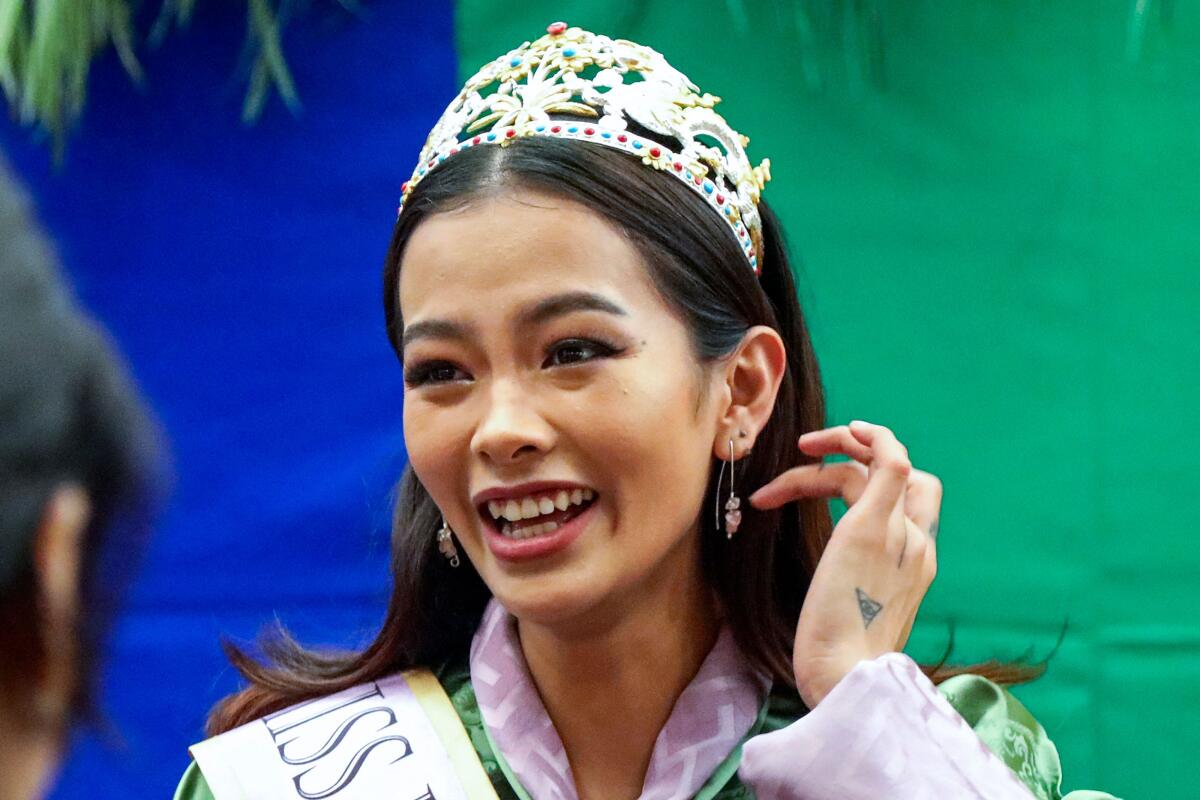
“They had a strong reaction, but I want to give hope to people like me, who come from a hard conservative family,” she said. “I know about the struggle; I’ve had my mental health issues, but I believe you must keep being unapologetically authentic. My family are quite OK with me now.”
In fact, Chombal said Bhutan gives hope to the region. “I’ve traveled a lot with my work, and I think it is one of the most LGBT-friendly countries I’ve been to. For example, I’m a very PDA kind of person” — fond of public displays of affection, she said. “I like to show my girlfriend that I fancy her — just by holding hands or cheeky kisses. But even if people are gawking at me, Bhutan makes me feel safe, which I don’t feel in other places.”
For Dorji, Bhutan is a “place of privilege.” He’s seen “the horrors that the community can face in Nepal, in Bangladesh. If I put on makeup here, no one will punch me.”
Chan is a special correspondent.
More to Read
Sign up for Essential California
The most important California stories and recommendations in your inbox every morning.
You may occasionally receive promotional content from the Los Angeles Times.
